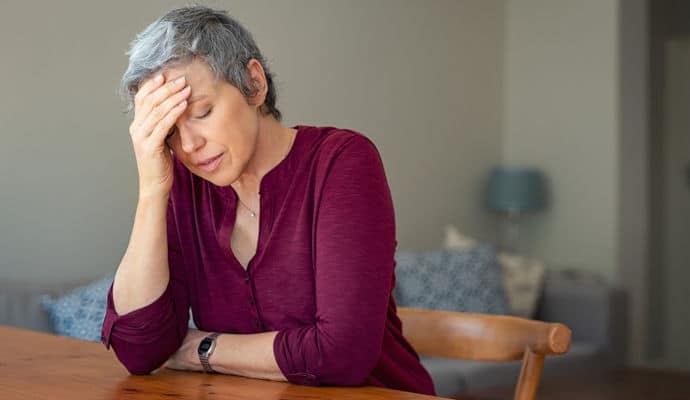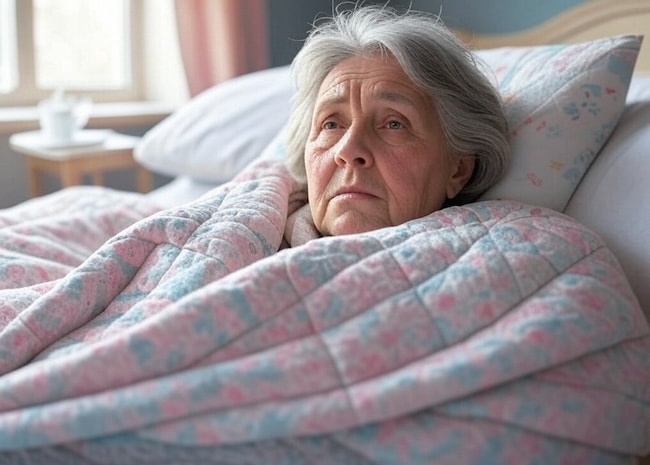If you're a caregiver, your own well-being is the invisible engine that powers everything you do. But when you're constantly pouring from an empty cup, both you and the person you care for can feel the strain.
The truth is, caring for yourself isn't a luxury or an act of selfishness; it's a non-negotiable part of being a sustainable and compassionate caregiver. These five practical strategies aren't about adding more to your overflowing to-do list; they're about finding small, manageable ways to refill your own cup, so you can continue to give your best without sacrificing your own health in the process.

A U.S. News & World Report story illustrates this through the experience of Frank Blood, 69, who has cared for his 78-year-old wife for 15 years. She’s faced two cancers, advanced COPD, and memory loss, yet Frank stays positive and healthy.
His secret? A strong commitment to self-care. As Frank says, “We have to maintain our attitude and good health, or the person we’re caring for will suffer.”
Why Caregiver Self-Care Matters
Experts agree: caregiver self-care isn’t optional. Ignoring your health can lead to caregiver burnout, depression, or exhaustion. That can make it hard, or even impossible, to continue caring for your loved one.
Taking time for yourself helps you stay strong, patient, and capable —precisely what your loved one needs most.
Putting your own needs first is one of the most selfless things you can do as a caregiver. It's like the oxygen mask on an airplane—you have to secure your own before you can help others. – Dr. Alexis Abramson, gerontologist, caregiving advocate, and author of The Caregiver's Survival Handbook
5 Practical Self-Care Tips for Caregivers
Here are five realistic ways to protect your well-being while caregiving.
Hold Family Meetings
Get everyone on the same page. Talk with siblings and relatives to divide responsibilities clearly.
Include your loved one when possible so they understand the plan.
Even family members who cannot provide hands-on care can assist by managing bills, paying for respite care, or handling insurance tasks.
Find a Support System
You don’t have to do this alone. Look for caregiver support groups, friends, neighbors, or faith communities.
Support can also come from local organizations or online forums where caregivers share advice and encouragement.
VIDEO: Essential Self-Care for Caregivers
Make Healthy Living a Priority
Good nutrition, sleep, and exercise are also important for caregivers.
If time is short, consider asking family or respite programs for help with short breaks to rest, eat, and recharge.
Schedule Regular Breaks
Even short breaks help prevent caregiver stress. Take a walk, nap, read, or enjoy a hobby.
Frank Blood says he gets downtime when his wife watches recorded TV, a small but effective way to recharge mentally and emotionally.
Use Local and Online Resources
You don’t have to handle everything on your own.
Start by contacting your doctor’s office or the Area Agency on Aging for caregiver resources, classes, and respite care options.
Here are just a few:
And of course, DailyCaring offers practical, trusted caregiver advice and tools to help you stay healthy and supported.
In Summary
Caregivers often put their own needs last, but neglecting self-care can lead to exhaustion, illness, and burnout.
When a caregiver’s health declines, their ability to provide quality care also suffers. Taking time to rest, eat well, and recharge isn’t selfish; it's essential. A healthy caregiver is better equipped to offer consistent, compassionate care and support to their loved one.
Frequently Asked Questions
Caring for someone else can be physically and emotionally demanding. Self-care helps you stay healthy, manage stress, and prevent burnout, allowing you to continue providing good care without sacrificing your own well-being.
Start small. Take short breaks throughout the day, schedule regular respite care, or ask family and friends for help. Even 10 minutes to rest, stretch, or breathe deeply can make a difference.
Walking, journaling, reading, listening to music, or talking with a friend are simple ways to relax and recharge. Choose activities that help you feel calm, supported, and restored.
Local Area Agencies on Aging, hospitals, and community centers often have caregiver programs. Online resources, such as the Family Caregiver Alliance, AARP Caregiving, and DailyCaring, also offer free tips and support networks.
About the Author

Connie is the founder of DailyCaring.com and was a hands-on caregiver for her grandmother for 20 years. (Grandma made it to 101 years old!) She knows how challenging, overwhelming, and all-consuming caring for an older adult can be. She also understands the importance of support, especially in the form of practical solutions, valuable resources, and self-care tips.














It s easier said then done; these 5 steps mean nothing bcause the problem doesn’t go away it s there forever & it doesn’t change ;it only gets worse!!
It is definitely easier said than done to care for yourself while caring for someone else. But it is also a very important part of continuing to be able to provide care. The person you’re caring for is going to require care for a long time. But if the caregiver ignores their own health and well-being, their own physical and mental health will suffer. Chronic severe stress does serious damage to the body. If caregivers neglect themselves, they may become too ill to continue providing care for their older adult. Self-care helps your own health and allows you to care for your older adult as long as it’s needed.